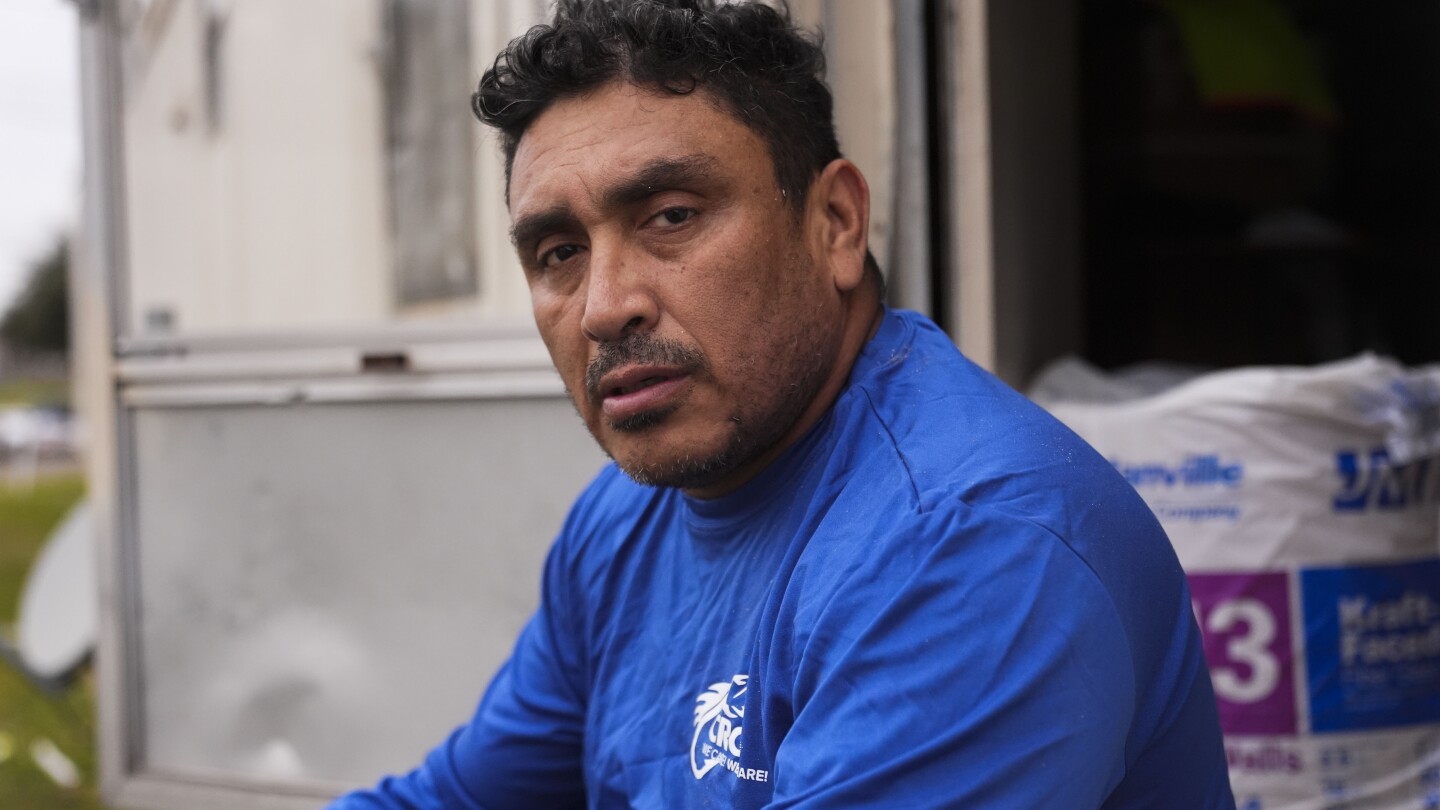Resilience in the Face of Chaos: Immigrants’ Role in Rebuilding After Disasters
In the aftermath of calamities such as wildfires, hurricanes, and other natural disasters, the importance of community resilience rises to the forefront. Amid these challenges, immigrant communities often emerge as critical players in recovery efforts, demonstrating an inspiring level of commitment and resourcefulness. Their unique contributions not only help rebuild physical structures but also restore the social fabric of affected areas. However, as political tensions escalate and the threat of deportation looms, the role of immigrants in these recovery processes becomes increasingly complex.
The Unseen Backbone of Recovery Efforts
Immigrant communities have historically played a pivotal role in disaster recovery. Their involvement is often driven by a deep sense of solidarity and shared experience. Many immigrants come from countries that have faced their own crises, equipping them with a resilience and adaptability that is invaluable in the wake of disaster.
- Skilled Labor Force: Immigrants frequently fill essential roles in manual labor, construction, and various trades during recovery operations. Their skills are crucial when rebuilding homes and infrastructure.
- Community Organizers: Many immigrants take on leadership roles, organizing relief efforts and mobilizing resources to assist those in need.
- Cultural Bridges: They often act as liaisons, helping to connect affected communities with available services and support, particularly for those who may face language barriers.
For example, in the aftermath of Hurricane Harvey in 2017, immigrant workers played a significant role in the recovery efforts. They were among the first to assist with cleanup operations, often working in dangerous conditions for minimal pay. Their contributions were essential to restoring the affected areas, showcasing their resilience in the face of chaos.
The Emotional Toll of Disaster Recovery
Beyond the physical rebuilding of homes and infrastructure, the emotional toll of disasters cannot be overlooked. Immigrants often provide critical emotional support within their communities. Their shared experiences foster a sense of belonging and understanding, which is vital for recovery.
Community gatherings, organized by immigrant leaders, often serve as safe spaces for individuals to express their grief, share their stories, and find solace in one another’s company. These gatherings not only promote healing but also strengthen community bonds, which are essential for long-term recovery.
Challenges Faced by Immigrant Communities
Despite their significant contributions, immigrant communities face unique challenges during disaster recovery. The threat of deportation can create a chilling effect, discouraging individuals from participating in recovery efforts or seeking assistance. This fear is often compounded by a lack of access to information and resources, as well as language barriers.
- Fear of Deportation: Many immigrants worry that engaging with local authorities or relief organizations could lead to their deportation, preventing them from accessing necessary aid.
- Limited Access to Resources: Immigrants may have fewer opportunities to secure financial assistance or access government services due to their legal status.
- Language Barriers: Navigating the complexities of disaster recovery can be daunting for non-English speakers, further isolating them from critical support.
These challenges highlight the need for inclusive recovery efforts that consider the unique circumstances of immigrant communities. By addressing these issues, local governments and organizations can ensure that all community members are empowered to participate in rebuilding efforts.
Building Bridges: The Role of Advocacy Organizations
Numerous advocacy organizations are working tirelessly to support immigrant communities during disaster recovery. These groups aim to provide resources, facilitate communication, and advocate for policies that protect vulnerable populations. Their efforts are vital in promoting resilience among immigrants.
- Resource Distribution: Many organizations focus on getting essential supplies, financial assistance, and information into the hands of those who need it most.
- Legal Assistance: Some organizations offer legal support to help individuals navigate immigration issues, reducing the fear of deportation.
- Community Engagement: By fostering connections between immigrant groups and local governments, these organizations help ensure that recovery efforts are equitable and inclusive.
For instance, groups like the National Immigrant Justice Center provide crucial legal resources and advocacy for immigrants affected by disasters, ensuring that their rights are protected and that they can fully participate in recovery efforts.
A Vision for Inclusive Recovery
As we look to the future, it is clear that a collaborative approach to disaster recovery is essential. This includes recognizing the invaluable contributions of immigrant communities and ensuring their voices are heard. Policymakers, community leaders, and organizations must work together to create an environment where immigrants feel safe to participate in recovery efforts.
- Policy Reform: Advocating for policies that protect immigrant rights during disaster recovery is crucial. This includes ensuring access to governmental aid without fear of deportation.
- Community Education: Providing education and resources to help immigrant communities understand their rights and available services can empower them to seek assistance.
- Strengthening Networks: Building strong coalitions between immigrant organizations and local recovery efforts can enhance the overall effectiveness of rebuilding initiatives.
By fostering resilience in the face of chaos, we can ensure that immigrant communities not only survive disasters but thrive in their aftermath. Their contributions are invaluable, and acknowledging their role in rebuilding efforts is essential for creating a more inclusive and resilient society.
Conclusion
Immigrants play an indispensable role in rebuilding after disasters, demonstrating remarkable resilience and commitment. As natural disasters become more frequent and severe due to climate change, it is crucial to recognize and support the contributions of immigrant communities. Together, we can create a more inclusive recovery process that honors the strength and resilience of all community members, paving the way for a brighter future in the face of chaos.
See more Update My News



